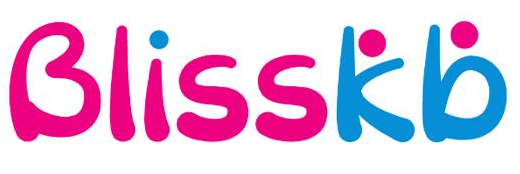
This is your website preview.
Currently it only shows your basic business info. Start adding relevant business details such as description, images and products or services to gain your customers attention by using Boost 360 android app / iOS App / web portal.
PICU Management
The PICU is the section of the hospital that provides sick children with the highest level of medical care. It differs from other parts of the hospital, like the general medical floors. In the PICU, kids get intensive nursing care and close monitoring of things like heart rate, breathing, and blood pressure. The PICU also lets medical staff provide therapies that might not be available in other parts of the hospital. These can include ventilators (breathing machines) and medicines that are used only under close medical supervision. Who's Sent to the PICU? Kids go to the PICU if they are seriously ill, need intensive care, and have medical needs that can't be met on the hospital's main medical floors. This might include kids with severe breathing problems from asthma, serious infections, some complications of diabetes, or those involved in a serious automobile accident or near-drowning. Sometimes, kids who were stable enough to be cared for on the hospital's medical-surgical floors move to the PICU if they become more acutely ill. After major surgery, many children get care in the PICU for several days. How long kids stay in the PICU depends on their condition. Some might stay a single day, while others stay for weeks or even months. As always, ask the doctor or nurse caring for your child if you have questions. Who Takes Care of Kids in the PICU? The PICU has many highly skilled people who care for kids. But not knowing who everyone is and what they do can be confusing and a little overwhelming at first. Most people will introduce themselves and tell you how they're involved in your child's care. If they don't, feel free to ask. At all times, you should feel comfortable asking the doctors and nurses questions about your child and the care being given. The nurses who work in the PICU are experienced in caring for the sickest children in the hospital. They're the people most closely involved with the minute-to-minute care of the kids. The PICU also tends to have a higher nurse-to-patient ratio than other parts of the hospital (in other words, each nurse cares for fewer patients, which gives them more time with your child). Many doctors may care for your child, but the attending physicians are in charge. Your child might be cared for by a pediatric intensivist. This is a doctor who did a 3-year residency in pediatrics after medical school, followed by 3 more years of subspecialty fellowship training in intensive care. The PICU team may include residents (doctors who've completed medical school and are training to be pediatricians) and PICU fellows (pediatricians training to be attending intensivists). Many other subspecialists, such as cardiologists (heart doctors) or neurosurgeons (brain surgeons), might be involved, depending on your child's needs. Respiratory therapists are experienced with ventilators and other breathing equipment, and are often involved in the care of PICU patients with breathing problems. Also, physical therapists, occupational therapists, dietitians, and pharmacists may play a role in your child's care. You also might meet social workers who help families cope with the emotional burdens of having a critically ill child. They can arrange temporary housing for families (through organizations like Ronald McDonald House), help with insurance issues, or coordinate discharge planning when your child is ready to go home. You may want to ask if the hospital has Child Life specialists. Trained in fields like development, education, psychology, and counseling, they help kids understand and manage being in the hospital. For example, they'll listen when a child needs to talk, calm fears about what's happening, or provide distractions like books and games. The medical team meets every day, usually in the morning, to discuss each patient's case in detail. These discussions are known as rounds. You may see a group of doctors, nurses, and others walking from patient to patient, planning the medical care for each patient. During rounds, you may be asked to stay in your child's room or to not enter or exit the PICU. This is to protect the privacy of other patients. Family-centered patient care might be practiced in the PICU. If this is the case, you'll be asked to join in your child's daily rounds. If you're not there during rounds or don't want to join, the attending physician will talk with you about the daily goals for your child by phone or in person.
We Provide Best Medical Service
Online appointment booking is not available right now.
Appointment Confirmed
Your appointment ID is
| Doctor Name: | |
| Date & Time: | |
| Contact: | +918048030654 |
| Address: | Flat No 2/203, Amogh CHS , Lalbaug , Ganesh Gali Mumbai |
| Appointment fee: | |
| Payment mode: | |
| Join video call at: |
Thanks for choosing us.Your appointment details has been shared on your mobile number as well. Please arrive atleast 10 minutes ahead of the scheduled time.
Success
